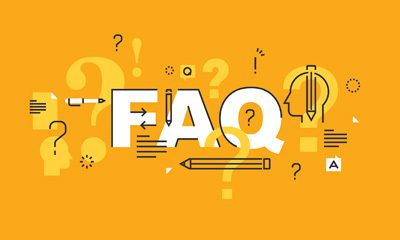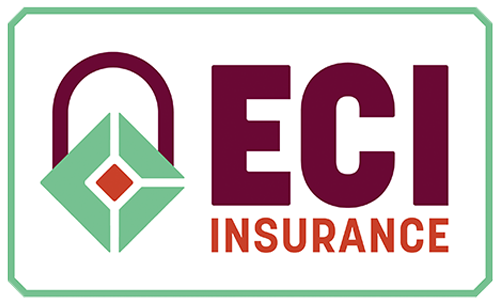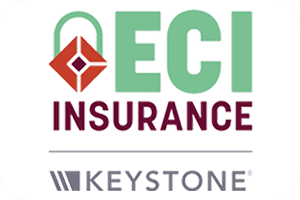
It’s not ideal to get a policy at the last minute. For starters, auto policies are intricate and coverages should be specific to you and your life. To help you understand what you’re buying, here are the answers to 13 car insurance questions you might be too embarrassed to ask.
1. Is foregoing auto insurance against the law?
Yes, because most states, specifically Oklahoma, require every driver on the road to have auto insurance. New Hampshire and Virginia are the big exceptions, but in New Hampshire, if you opt for car insurance, you have to buy the minimum amount, and in Virginia, you have to pay $500 a year to drive around without coverage. Plus, you won’t have coverage.
2. Is the minimum amount of car insurance enough for me?
Ehhh … I mean if you want to put someone else in a bind, possibly end up in financial ruin, but have cheap premiums then maybe your answer is yes. In terms of adequate, Oklahoma state minimums only require $25,000/$50,000/$25,000. $25,000 may sound like a lot but consider that most brand new, low end cars cost that alone, not to mention if you hit a luxury car. Most states only require liability insurance, which covers property damage or bodily injury you cause to other people. You would need other types of car insurance if you wanted coverage for damage to your car.
3. There are different types of car insurance?
Ya boy! Here are the main types
- Bodily injury (BI) and property damage (PD) liability coverage – This pays for damage you cause to other people or their property.
- Personal injury protection (PIP) – pays for medical expenses and usually lost wages regardless of fault. Many states do not have this coverage, but for the states that do, it can come in handy.
- Collision coverage – pays for damage done to your car in a collision
- Comprehensive coverage – pays for damage done to your car in non-collisions (i.e., fire, vandalism, or theft).
- Uninsured and underinsured motorist (UM/UIM) coverage – this protects you if you’re in an accident and the driver at fault doesn’t have insurance. It only pays for bodily injury bills. To fix your car you may still need comprehensive and collision coverage.
There’s also gap insurance, which covers the — you guessed it — gap between what your car is worth (what your insurer will pay if the car is totaled or stolen) and what you still owe on it.
4. Is Gap Insurance for me?
Gap insurance is important if you don’t put a lot of money down on a new car, have a long auto loan term (60 months or more), are upside down on a vehicle, drive a lot, are low on emergency funds or bought a car that depreciates quickly or gets stolen a lot.
5. If I don’t own a car do I still need auto insurance?
If you rent or drive other people’s cars frequently, then, yes, you should look into a non owner auto policy which provides basic liability coverage. Non-owner policies don’t include collision or comprehensive coverage, because you don’t need it. Remember, collision and comprehensive coverage pays for damage to your car and, in this scenario, you don’t have one.
6. I have a car. How much auto insurance should I buy?
You should buy enough insurance to protect the life that you’ve built and are comfortable with. Having said that, the price difference between a bare-bones policy and a robust policy is sometimes negligible and insurance companies will often give you a discount for purchasing higher limits.
7. How is that possible?
Car insurance premiums are based on a long list of items, including your driving history type of vehicle, how often and how far you drive, age, gender, marital status, zip code, credit score.
8. OK, but while we’re on the subject: Do red cars cost more to insure?
No. That’s a myth. The make and model of a car impact your rates, given some cars are just more expensive than others. Take the Tesla Model S, for instance, which costs a ton to insure, regardless of color, because it’s full of expensive parts.
9. Do you auto rates automatically change when I turn 25 or an accident falls off my record?
It’s hard to say. You might see rates change as you age, but they don’t always go down, so much as they level out or increase at a lower rate. (Remember, the rules of inflation are in effect.) Accidents and tickets are often on your driving record anywhere from 3-5 years. As with age, inflation is in play so while an accident may “fall” off your record, your rates may not drastically drop.
10. What kind of car insurance discounts are there?
So glad you asked- there’s a bunch! The big ones include good driver discounts (not having accidents or tickets); affiliation discounts (for belonging to a group, like AAA or AARP, that partners with the insurer); low-mileage discounts, and car safety feature discounts (for installing stuff like emergency break assistance or collision avoidance systems, and anti-theft measures) bundle deals (when you package your home and auto together.) Also, if you have kids you can get a good student discount by sending in their report card with good grades.
11. Should I bundle my car insurance with another policy?
Probably. In many instances, bundling car insurance with homeowners or renter’s insurance can save you money…up to 20% with some companies.
12. Is there any other way to lower my car insurance premiums?
There are two other methods that can help you save a little. First, you could pay your premiums annually or semi annually. Some car insurers offer anywhere from a 3% to 10% discount for doing so. The other thing you can consider is increasing your deductible. That’s the amount of money you pay out of pocket before insurance kicks in, so you’d pay more in case of an accident, but your monthly premium would be lower.
13. Can you tell me once and for all if I need rental car insurance?
We can help you figure out if you need rental car insurance. The short take: If you don’t have auto insurance, yes, you most likely need coverage. If you have robust car insurance, you might simply need a collision damage waiver as it’s the only way to ensure you won’t pay the rental company any damages in case of an accident. Of course, it gets more complicated from there.
For questions or quotes on your personal home and auto insurance give us a call or text us at 405-373-2977.


